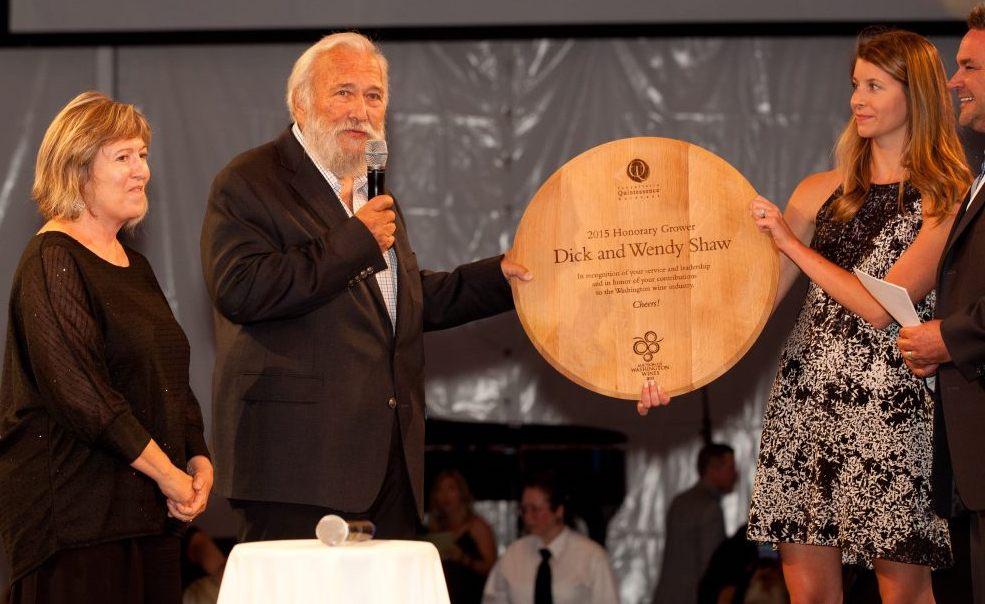
Richard Henry “Dick” Shaw, who felt most comfortable in the boardroom or riding in a farm truck, was behind some of Washington’s top-scoring wines and its best values with his 3,500 acres of vineyards.
The Tacoma native saw the 2023 vintage come to a close before he died Oct. 27 at age 84 in Richland of congestive heart failure, with his wife, Wendy, by his side. The Shaws were named the Honorary Growers for the 2015 Auction of Washington Wines. Three years later, they were inducted into the Legends of Washington Wine Hall of Fame.
“He was not only a pioneer, but he also helped create a movement in Washington wine,” said Victor Palencia, who made wine for 14 years at a massive facility on the Wahluke Slope for Shaw and the late Jack Jones. “Some of the large companies are talking about gray skies in our industry right now, but I’m proud to be part of the wave that many of us are on — and it’s because of coaches like Dick who set the path for us to be producing the great wines we are today.”
Charlie Hoppes of Fidélitas Wines was one of the first customers for Quintessence Vineyard, a 300-acre site on Red Mountain near Col Solare that Shaw launched with Paul Kaltinick, a longtime business partner from Tacoma and former CFO for JCPenney.
“Dick was one of those figures who was larger than life, and when he and Paul decided to plant that in 2010, they talked about it being a legacy they wanted to leave,” Hoppes says. “It amazed me why these two who were in their mid-70s at the time would want to plant such a vineyard, but they knew they had an incredible site.
“You can tell the difference whenever you taste a wine from Quintessence,” Hoppes added. “The wines are special, and other wineries talk about that, too. And we often use Quintessence to make other wines better.”
The first experience Hoppes had with Shaw-grown grapes was from the 1987 vintage. Hoppes was working on the Wahluke Slope for winemaker Mike Januik at Snoqualmie Vineyards, when they knew they had something special with a $12 reserve Merlot and a $10 Cab. It was renowned viticulturist Walter Clore who helped Shaw and his group with site selection in 1981 for that first 100 acres.
“Those two wines ended up making Wine Spectator’s top 100 wines in the world in 1990 (Nos. 63 and 93, respectively), and they were both from Dick’s vineyard,” Hoppes said of the list that included a Woodward Canyon 1987 Cab at No. 10 and a Leonetti Cellar 1987 Cab at No. 82.
Shaw’s work ethic took root during childhood, part of it spent in the logging town of Morton where his mother ran a boarding house.
“His bed was under the staircase, and he told me how his mom would really get after the loggers who came in late after a night on the town,” Hoppes said. “He talked a lot about those experiences, which were pretty humble beginnings.”
Shaw, who would graduate from Lincoln High in Tacoma and attend the University of Puget Sound, found inspiration while working at a plywood mill. His life would turn around when he was encouraged to invest in housing. Before the age of 30, he was founder and board chair at the Bank of Tacoma.
By the time of that first acclaim via Wine Spectator, Shaw’s early partners had moved on, but he forged ahead. Those holdings on the Wahluke Slope would stretch 1,200 acres and continue throughout the Columbia Valley, including the Horse Heaven Hills, the White Bluffs, Candy Mountain and other Red Mountain acquisitions such as Red Heaven and Scooteney Flats. Decorated vineyard manager Marshall Edwards has been key to the success and communication with the more than 100 clients for Shaw Vineyards grapes.
Palencia says he’s eternally grateful for the confidence and the opportunities Shaw and Jones provided.
“I didn’t know it at the time, but those guys liked to play big and they saw the big picture. When they hired me they told me it wouldn’t grow beyond more than 5,000 cases,” he chuckled. “One year, we ended up taking in 24,560 tons.”
That weight in grapes equates to more than 1.5 million cases of wine.
A decade ago, Dick and Wendy created a brand named for their fathers, Henry Earl Estates, with a tasting room in downtown Walla Walla. They sought and got critical acclaim for their early bottlings. Among those was a trio of Platinum Awards, which included a 2013 Cabernet Sauvignon from Red Mountain made by Hoppes and Mitch Venohr.
Grapes grown by Dick, Wendy and their team will continue to factor significantly in many of the state’s top wines. Producers include DeLille Cellars, Great Northwest Wine’s 2022 Pacific Northwest Winery of the Year, and Liberty Lake Wine Cellars — the 2022 Washington Winery to Watch. And the No. 1 wine of the 2019 Platinum Awards was produced by Château Faire Le Pont in Wenatchee with Cab from Shaw 32 Vineyard.
“People are making $100 bottles of wine from his vineyard, and they will continue to do so,” Hoppes said.
Rebecca “Becky” Yeaman
Becky Yeaman, co-owner of Thurston Wolfe Winery in Prosser and one of the Washington wine industry’s most beloved figures, died Feb. 6 while in hospice at age 67.
She was a longtime member of the Yakima Enological Society, which led to her managing the tasting room at Quail Run and working for Stan Clarke.
One of Clarke’s friends was Yakima Valley winemaker/viticulturist Dr. Wade Wolfe. She and Wade launched the Thurston Wolfe brand in 1987, and one of the most popular wines was called Sweet Rebecca. They began operating in Prosser in 1995, and a decade later they helped raise the profile of the new Vintners Village by building a winery/tasting room.
In 2012, the longtime aerobics instructor and Wolfe celebrated Thurston Wolfe receiving the Pacific Northwest Winery of the Year Award from Wine Press Northwest Magazine.
Richard “Dick” Charles Erath
The Willamette Valley wine industry lost a titan when Dick Erath died at the age 87 on March 29. Portions of his remarkable story were shared in the acclaimed 1997 book The Boys Up North: Dick Erath and the early Oregon Winemakers by Paul Pintarich.
Erath, an electronics specialist and engineer in the Bay Area, went from a home winemaker in 1965 to studying wine at the University of California-Davis. That interest prompted him in 1968 to take a job with Tektronix in Beaverton, Ore., uproot his family and buy 49 acres near Newberg along Dopp Road. The next year, he experimented across 4 acres with 23 grape varieties. Among those was Pinot Noir, and fruit from the 1972 vintage — made on Cal Knudsen’s estate — marked the first commercial wine produced from the Dundee Hills.
Within a decade, his winemaking sparked the Knudsen Erath brand to reach an annual production of 10,000 cases. In 1984, Wine & Spirits Magazine chose a Knudsen Erath wine as “the Best American Pinot Noir.” Three years later, Erath and Knudsen went in different directions after production reached 35,000 cases with national distribution.
By 1994, he took Erath Winery international. In 2006, Ste. Michelle Wine Estates made its first major investment in Oregon by buying the winery from Erath. Not all of his plantings were part of the sale. In 2017, he sold Prince Hill Vineyard to owners of Napa icon Silver Oak for their Pinot Noir- focused Twomey brand.
Among his legacies is a botrytis-resistent clone of Pinot Noir that Erath received via cuttings from Burgundy and would establish years later at Prince Hill as “clone 95.” It required additional testing and treatment by UC-Davis before it was re-released and registered as Pinot Noir clone 117.
Traute Fischl Moore
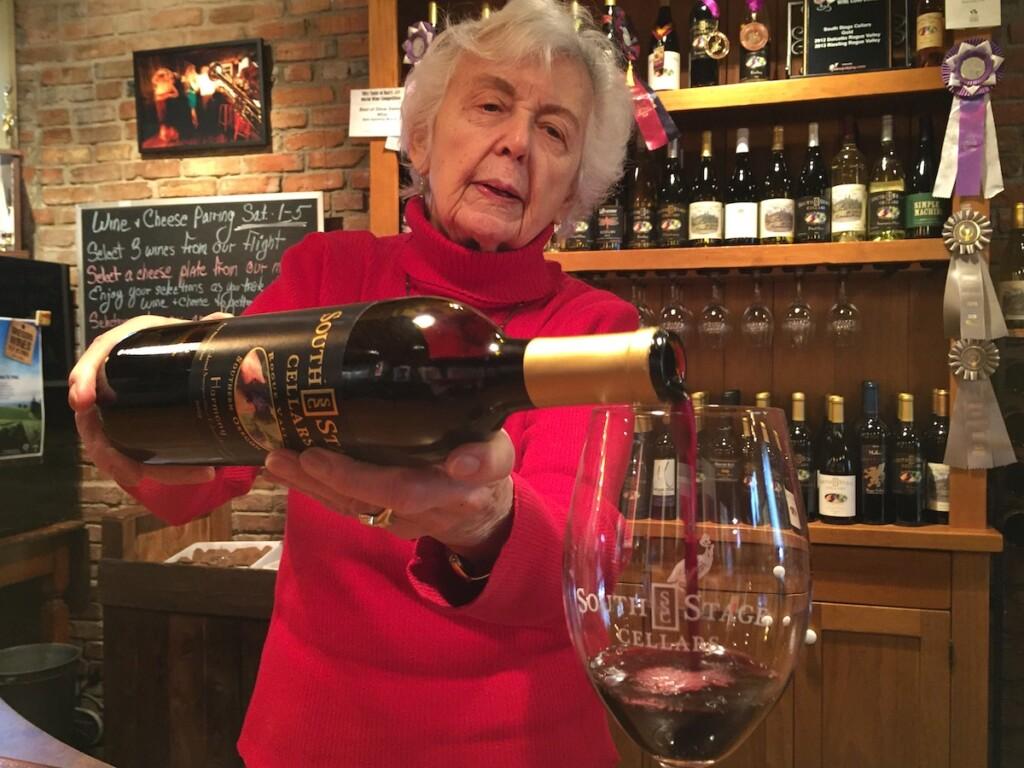
Traute Moore, the Southern Oregon matriarch of Quail Run Vineyards and South Stage Cellars in Jacksonville, died April 20 at age 89.
As Jews from Austria, she and her mother spent two years in an England refugee camp during the early stages of World War II. They made their way to St. Louis, Mo., where Traute met her future husband, Don. He was a physician in Central California, and she was an artist and an activist who enjoyed growing avocados and oranges when they decided in 1989 to buy farmland near Ashland, Ore., that included a small vineyard.
Their dedication and success attracted the attention of winemakers such as Joe Dobbes, who encouraged Willamette Valley Vineyards to create a new brand — Griffin Creek — in order to use and showcase the grapes grown in Southern Oregon by the Moore family, particularly Merlot and Rhône varieties. Those wines factored into Wine Press Northwest selecting Willamette Valley Vineyards as its 2011 Oregon Winery of the Year. Another of the family’s customers — Spangler Vineyards — became the 2018 Oregon Winery of the Year.
In 2010, the Oregon Wine Board presented Traute and Don with the Founders Award. Don passed away in 2021. Their son, Michael, left a career as a filmmaker to manage the family’s 350 acres of vines and more than 30 varieties planted across 13 sites in the Rogue Valley and Southern Oregon.
Jerrold “Jerry” Bookwalter
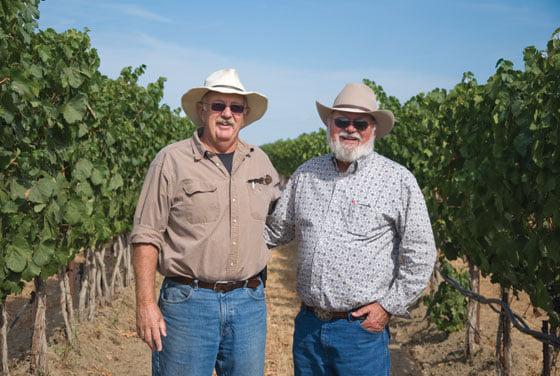
Jerry Bookwalter, the renowned grape grower and vintner who began J. Bookwalter Winery in Richland, Wash., died Aug. 21 of cancer at the age of 83.
He grew up in Modesto, Calif., and graduated from UC-Davis with degrees in agriculture economics and pomology. Bookwalter was hired in 1976 by Sagemoor Farms — a 1,000-acre operation that included Washington state’s first large- scale commercial vineyard. He and his family, which included his son, John, lived for a time at now-historic Bacchus Vineyard.
At one point, Sagemoor grew 60% of the state’s wine grapes. Early customers included Leonetti Cellar and Woodward Canyon, and both Walla Walla Valley wineries benefited from Bookwalter’s skill with the Cabernet Sauvignon and Merlot he grew for them. By 1982, Bookwalter and his wife, Jean, started their eponymous winery in the Tri-Cities. He credited several of his talented winemaking clients for help with his wines.
By 1985, he served as vice-president of the Washington Wine Grape Growers Association. Three years later, he began a vineyard management business. Clients included Conner Lee and Shaw vineyards. In 1999, John left a marketing career in the beverage industry to return and take over the family winery. Six years later, Wine Press Northwest named J. Bookwalter as its Washington Winery of the Year.
In 2011, the Auction of Washington Wines named Jerry Bookwalter its Honorary Grower. Among the many projects he assisted with was Bear Barton Vineyard, a young 3,100- foot elevation site near Cashmere, Wash., believed to be the highest commercial planting in the state’s wine industry.
And J. Bookwalter Winery, at 50,000 cases, ranks as one of the state’s largest family-owned wineries.
Brock Wade Lindsay
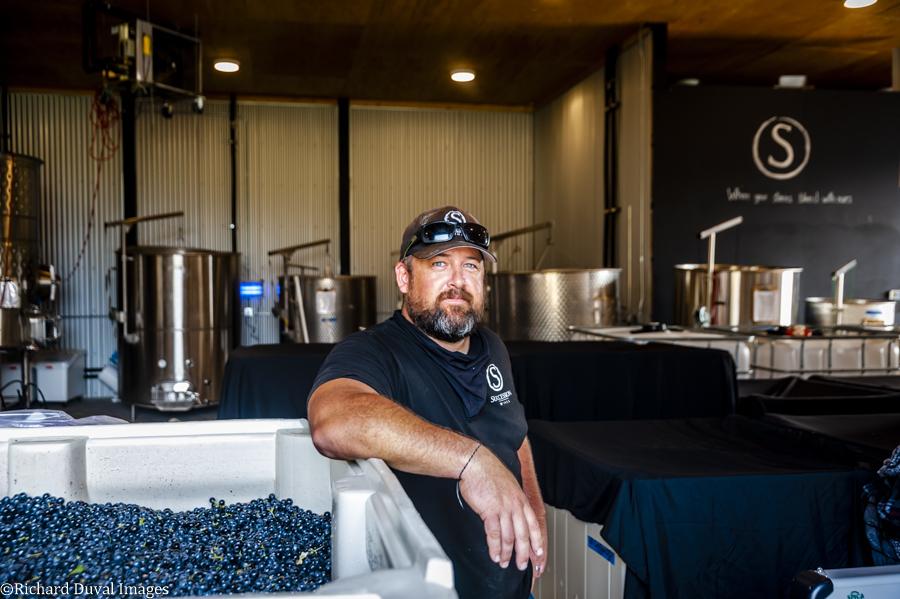
Brock Lindsay, 40, award-winning winemaker and co-owner of Succession Wines and Alta Cellars in Washington’s Chelan Valley, died Aug. 26 in a farm vehicle accident near his Manson winery.
The Seattle native was a civil engineer and bridge builder when he decided to study winemaking through Washington State University. He and his wife, Erica, lost their home in the 2014 Carlton Complex fire. Undaunted, they launched Succession with the 2013 vintage.
Success was almost immediate, and gold medals won prompted Wine Press Northwest to select Succession as the 2018 Washington Winery to Watch. Brock’s talent, personality and perseverance helped him gain contracts with top-tier vineyards that would be out of reach for most upstart winemakers. That access and the interest in his wines fueled his annual growth from 600 cases to 10,000 cases within a decade. He also managed Antoine Creek Vineyard near the Columbia River.
Lindsay was such a beloved member of the state’s wine community that a GoFundMe campaign for his family raised nearly $118,000.
Calvin “Scott” Henry III
Southern Oregon pioneer Calvin Scott Henry III, who developed the vineyard technique now referred to as the Scott Henry trellising system, died Oct. 26 at age 86.
He graduated from Roseburg High School in 1959, worked in the aeronautical industry, and returned to the family farm to try growing wine grapes.
He launched Henry Estate Winery in the Umpqua Valley in 1978, but he struggled with grape rot until he came up with a trellis technique that divided the canopy to create more sunlight and air movement for the clusters. He shared his findings with the industry, and the Scott Henry name is known and appreciated around the world. Oregon State University and Umpqua Community College have honored his contributions to engineering and grape growing.
Among his survivors is Scott IV, who owns and operates Seasons Cellars, which has won eight career Platinum Awards, including two in 2023.
John “Russ” Hamilton
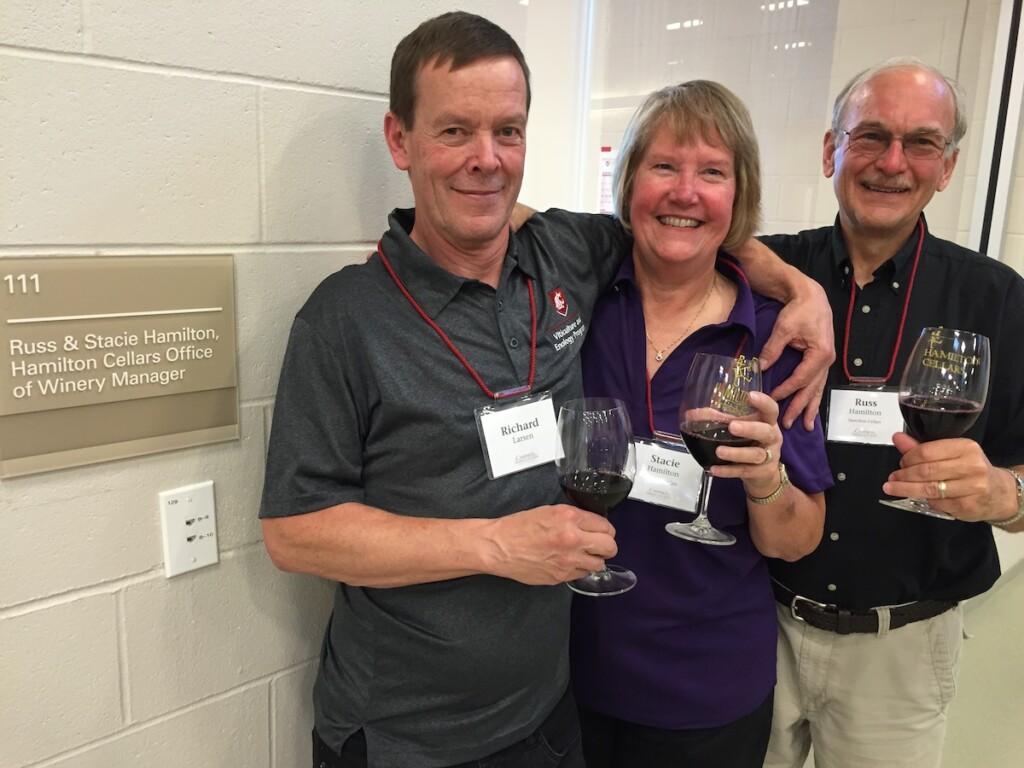
Red Mountain suffered another loss toward the end of 2023 with the passing of vintner Russ Hamilton.
Hamilton, who died Nov. 28, owned and operated Hamilton Cellars. The graduate of Purdue University had been struggling with his health when he died at the age of 71. His wife, Stacie, died in 2021.
The Hamiltons were generous supporters of Washington State University, Stacie’s alma mater. Their level of donor ship to the Ste. Michelle Wine Estates WSU Wine Science Center was reflected ahead of the 2015 ribbon-cutting ceremony with the establishment of Room 111 as the Russ & Stacie Hamilton/ Hamilton Cellars Office of Winery Manager.
He grew up in Indiana, and his degree in mechanical engineering led him to decades of work with Chevron. He transitioned to another successful career in the production of silicon solar panels, which took him to Asia. The Hamiltons eventually settled in the Tri-Cities, where Stacie grew up and gained respect as a CPA and financial advisor. They purchased land along Sunset Road on Red Mountain that would become their home, a showpiece tasting room in 2014 and a 10-acre vineyard planted and managed by Dick Boushey, who urged them to include Malbec.
Hamilton’s investments in the wine industry included transforming a former beer distributorship into the vinification facility that became the home of Wine Boss — where Charlie Hoppes, his son Will, and Mitch Venohr have made wine for Fidélitas, Hamilton Cellars and myriad brands.
Among the sources of pride for Russ Hamilton was for Hamilton Cellars to go down as the first net-zero solar winery in the state. And in the past two years, Hamilton Cellars used estate grown-grapes to earn a total of six Platinum Awards from Great Northwest Wine. A pair of those were for Malbec.
John Randolph Sealy
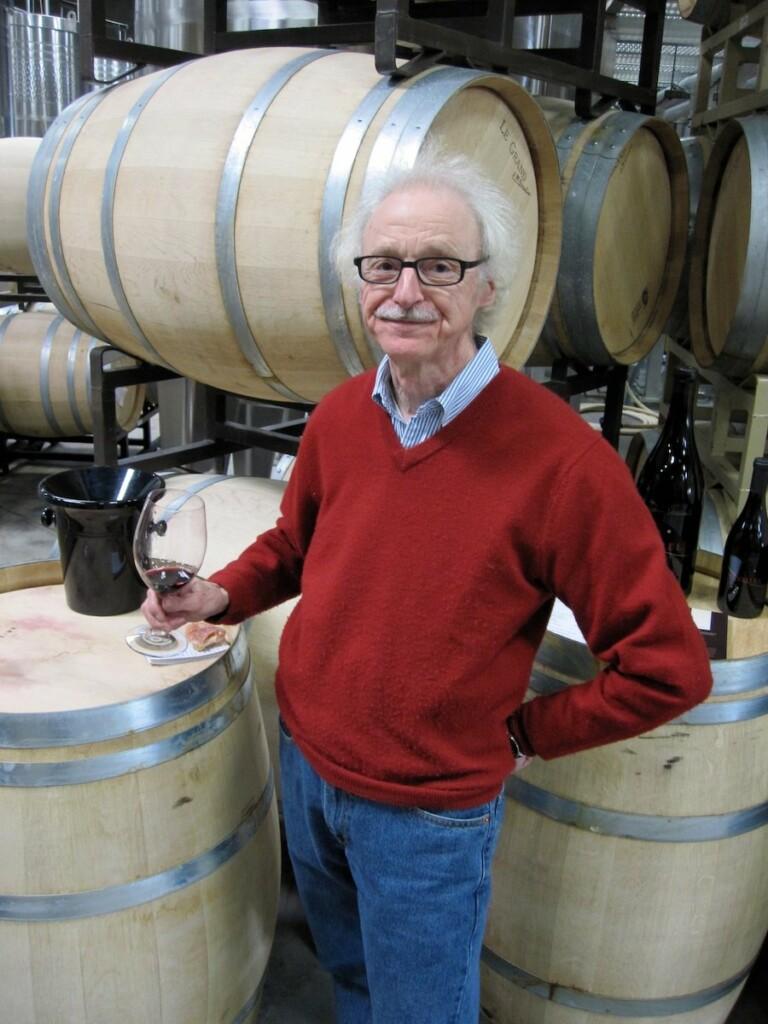
Rand Sealey, founder of Esquin Wine Merchants in Seattle and a wine critic later in his career, died Oct. 17 in Walla Walla at the age of 79.
He established the downtown bottle shop in 1969 and sold the business in 1997. He maintained a relationship with Esquin after he and his wife, Lynn, moved to the Walla Walla Valley.
The native of Kansas City, Mo., moved to Seattle as a child, attended the acclaimed Lakeside School and graduated from Columbia University. He returned home for graduate school at the University of Washington, receiving a master’s degree in history the same year he launched Esquin on First Avenue.
Sealey took a novel and noble approach to his reviews — purchasing the bottles he evaluated, writing only about those wines he enjoyed and using a 20-point scale. His Ivy League education came through in his thoughtful, long-form reviews, which he published to ReviewOfWashingtonWines.com, and he charged a modest $20 per year for a “full” subscription. A regular subscription was $10.

Leave a Reply